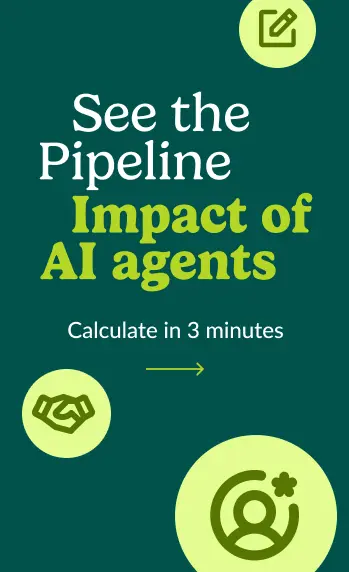Salesloft’s State of Revenue Engagement Benchmark Report Reveals Top Business Challenges to Growth, Biggest Areas of Opportunity
Published:

Revenue leaders point to pipeline generation and economic uncertainty as the top two challenges to growth in 2023; customer retention and expansion as biggest areas of opportunity
ATLANTA, September 13, 2023 - Salesloft, provider of the first and only global AI-powered revenue workflow platform, in partnership with SaaS metrics firm Benchmarkit, today released the 2023 State of Revenue Engagement Benchmark Report featuring insights from more than 260 revenue leaders. A key finding in the report was that median quota achievement for Account Executives (AEs) is only 50%.
“Decreasing rates of quota achievement represents a material risk in the form of attrition and lost productivity, which will inevitably impact both new and expansion revenue growth in the near and long term,” said David Obrand, CEO at Salesloft. “Now is the time for revenue leaders to reimagine their sales teams’ workflows, which at present can only be characterized as chaotic, unpredictable and inefficient. Using AI to codify workflows is the key to making them consistent and repeatable, thereby improving deal cycle time, customer time to value, and ultimately, revenue outcomes for the business.”
Other key findings from the report include:
- Pipeline generation is the number one challenge to growth: Fifty-five percent (55%) of participants highlighted pipeline generation as the top challenge to revenue growth in 2023. This is consistent with other benchmarking research from Benchmarkit in 2021 and 2022. Significant progress on reducing the challenges associated with pipeline generation has not been made, highlighting the opportunity for enhanced engagement processes.
- Ongoing customer engagement across go-to-market functions presents a significant opportunity to improve revenue outcomes: With 40% of total revenue growth being attributed to existing customers, the need to increase focus on pipeline development and revenue generation with existing customers should be a priority for revenue teams. Account Management and Customer Success are the two functions most commonly measured on existing customer renewal and expansion. Marketing and Sales Development are measured significantly less so. Increasing the involvement of Marketing and Sales Development for generating existing customer expansion pipeline, revenue generation and renewals is an opportunity for improved alignment across the go-to-market functions and could materially impact revenue outcomes.
- Reliance on CRM and spreadsheets as the top two tools for forecasting is likely a key contributor to forecast inaccuracies: An overwhelming majority (91%) of companies missed the new revenue forecast by +/- 6% or more, while 69% consistently missed the forecast by +/- 11% or more. With 80% of companies reporting they rely on their CRM and 50% relying on spreadsheets to manage the forecast, there is a significant opportunity to evaluate forecasting technology that applies machine learning and AI to event signals to increase forecast accuracy.
Salesloft is transforming the profession of B2B sales with the launch of its newest innovation, Rhythm. Powered by a proprietary, patent-pending AI engine called Conductor AI, Rhythm translates real-time buyer signals from across the Salesloft platform and partner integrations into a single prioritized workflow of the most important and impactful actions a seller should take in the moment. With Rhythm, sellers can act with certainty, knowing what to do, when to do it and whom to do it for in order to drive efficiency, effectiveness and the best outcomes for themselves and their buyers.
To learn about Salesloft’s latest platform innovations to increase revenue engagement visit our homepage
Research Methodology
Salesloft, in partnership with Benchmarkit, conducted market research throughout the first half of 2023 to benchmark the state of Revenue Engagement and Revenue Performance in the United States and Europe. In total, 264 participants representing a broad cross-section of company sizes, annual contract values and go-to-market models participated in the research.





























